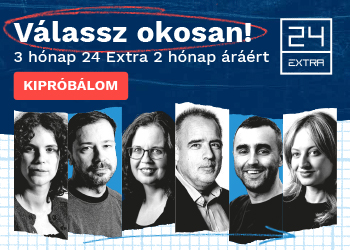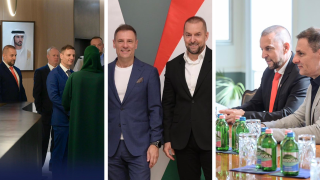Under the title of supporting tourism-themed board games, the Hungarian Tourism Association Foundation (MTSZA) led by Péter Princzinger received 888,956,000 HUF from the Kisfaludy 2030 Tourism Development Nonprofit Ltd., which falls under the Hungarian Tourism Agency. However, despite the initial plans, the mentioned board game was not distributed to touristic accommodations. According to the foundation’s 2022 report released in the summer, only 8,831 copies had been distributed, while the MTSZA had 40,000 boxes produced.
We first approached the foundation and its leader with our questions, including inquiries about the game’s details, recipients, and contracted companies. The association provided only a single sentence in response, without disclosing the name of the game:
Thanks to the support from Kisfaludy 2030 Tourism Development Nonprofit Ltd., a total of 40,000 tourism-themed board games were produced, which were or are going to be provided free of charge to children, families, and educational institutions.

In the end, we came across the “AdvenTourist Natural Treasures” board game on the internet, the box featuring both the logo of the Hungarian Tourism Association and the name of the manufacturer.
The goal of the game is to establish a travel agency, develop attractions, attract tourists, and continuously improve the quality of provided touristic services. The game can be played by 2 to 5 players at a time, with an average game length of 1 to 2 hours. It is recommended for players aged ten and older.
Sándor Kellermayer, the product developer of manufacturer Promitor Ltd., told 24.hu that the company had no affiliation with the Hungarian Tourism Association. They were approached by the game’s developer, Gladiator Games Ltd. “The company provided a specification and asked for our suggestions, and we presented several options. We then prepared a price offer, which they accepted,” he recalled. Two versions of the game were produced, differing mostly regarding the visuals.
We manufactured a total of 20,000 instances of each version (so 40,000 total), for which we invoiced the client about 110 million HUF
– Kellermayer said. He added that in the end the order didn’t turn out well for them financially due to material costs rising rapidly during production.
“We were actually curious regarding where the 40,000 games would find their place on the Hungarian market. The client answered that each Hungarian tourist accommodation unit would receive one, so the game wouldn’t actually have a retail price; it was primarily intended as a gift or a promotion,” explained the product developer. He also mentioned that they enjoyed the project as they were able to create a high-quality, well-made game both in terms of content and materials.
We also attempted contacting developer Gladiator Games Ltd. in writing, but had not received an answer. We also sent further questions to the Hungarian Tourism Association, inquiring why the board games were not ultimately distributed to tourist accommodations. We also requested them to disclose which educational institutions received the AdventTourist game, how many were distributed in total, and how many remain with the foundation. So far, no answer has been given.
Where could the games be, and why were they so expensive?
Sándor Kellermayer’s answers raise several questions. First, it’s hard to understand why, contrary to the original plan, the board games were not distributed to accommodations. Perhaps even more unclear is why the Hungarian Tourism Association received 889 million Hungarian Forints in support for a board game that the manufacturer produced in 2021 for a mere fraction of that cost.
According to a source familiar with the board game market, the amount is remarkable, especially considering that no retailer was involved in the project, as retailing the game usually amounts up to 40-60% of the cost. Usually, the game designer receives around 10% of the production cost, and the graphics make up about 3% of the expenses.
“Lately, at events of all kind and in shopping malls, one can often come across the tent of the Hungarian Tourism Association’s and the team of the Kajla touristic program (a nation-wide domestic tourism promotion built around the mascot-character Kajla the puppy). The last time we saw them at such an event, they were giving away two different board games of substantial size to anyone who approached them.”
According to Géza Tokár’s Tumblr post from last May. The political scientist who lives in the Hungarian-speaking part of Slovakia noticed the distribution of the game at an event in Esztergom. The game being given away for free seemed to generate considerable demand. The game appeared at the same stands where the Kajla children’s activities were also taking place.
Tokár believes that AdvenTourist is a surprisingly complicated game, which is why it comes with a recommendation for those aged 10 and above and a playing time of 60 minutes. “Distributing it as a promotional gift can be somewhat counterproductive as people are taking it like hot cakes, but if this is someone’s first ‘hardcore’ board game experience, then reading through the 18-page rulebook and learning the game can be quite a shocking experience,” he writes. Given this, it’s even harder to understand why the board games were distributed to educational institutions instead of touristic accommodations, where a team can genuinely enjoy board gaming for a few hours.
Interestingly, the free game, which cost taxpayers 22,000 Hungarian Forints per piece, is already being sold on the internet, typically for 3,000 to 5,000 Hungarian Forints each. Some are even being sold unopened.
We found approximately twenty pieces listed on Facebook’s Marketplace alone.
According to a Facebook post, the game was also distributed in the Kecskemét mall; one only had to fill out a questionnaire to be awarded a copy.
The foundation closed 2022 with more than a billion in the red
The Hungarian Tourism Association, registered at Szilágyi Dezső Square in Budapest’s 1st district, reported a loss of 1,171 million Hungarian Forints for 2022. This marks a significant drop compared to the previous year’s EBT of 1.5 billion HUF. Despite this loss, revenues increased by nearly half a billion compared to last year, reaching 12.5 billion. The foundation was also generously aided with a tax-paid support of 11.7 billion Hungarian Forints. G7 reports that the Hungarian Tourism Association Foundation, affiliated with Ráhel Orbán’s (Viktor Orbán’s daughter) circles, was also taken under the wings of the national lottery company: over the past five years, a third of the support distributed by the state-owned company’s subsidiary ended up with the foundation.
According to the foundation’s financial reports, the majority of their support, 6.9 billion Hungarian Forints, comes from the fees paid by banks for the SZÉP cards (a form of prepaid card used for recreational purposes in Hungary), and a significant part of it is the 889 million Hungarian Forints granted for the board game in 2022. In the same year, the Hungarian Tourism Association received:
- 952 million Hungarian Forints for industry promotion.
- 800 million Hungarian Forints for supporting Hungarian touristic guidebooks.
- 761 million Hungarian Forints for promoting castles and chateaus.
- 617 million Hungarian Forints for heritage protection projects.
Expenses, however, increased even more markedly than state support, from 10.4 billion to over 13.6 billion Hungarian Forints, which explains the total annual loss. Material costs increased by 1.4 billion Hungarian Forints in 2022 compared to the previous year, and other expenses increased by 1.6 billion Hungarian Forints. Within the latter, one can find
The report’s complementary text mentions that “impairment accounting was performed for board games purchased during the year.” The report doesn’t specify the exact amount, only mentioning the size of the inventory at the end of December.
The foundation’s report also reveals that personal expenses increased, rising from 419 million to 542 million Hungarian Forints in one year. The Chairman of the Supervisory Board, Péter Princzinger, received a total of 20,850,000 Hungarian Forints in 2022, which means he could withdraw 1,700,000 Hungarian Forints per month from the foundation. The Supervisory Board consists of 11 members, including Attila Czene, an Olympic champion swimmer and former state secretary for sports, prominent winemaker Ottó Légli, and Zoltán Somlyai, the CEO and former owner CEO of BDPST Hotel Management Plc. that belongs to István Tiborcz (husband of Ráhel Orbán). The Supervisory Board’s members collectively received 74 million Hungarian Forints for their work in 2022.
Machine translation revised by Frigyes Harmat.






